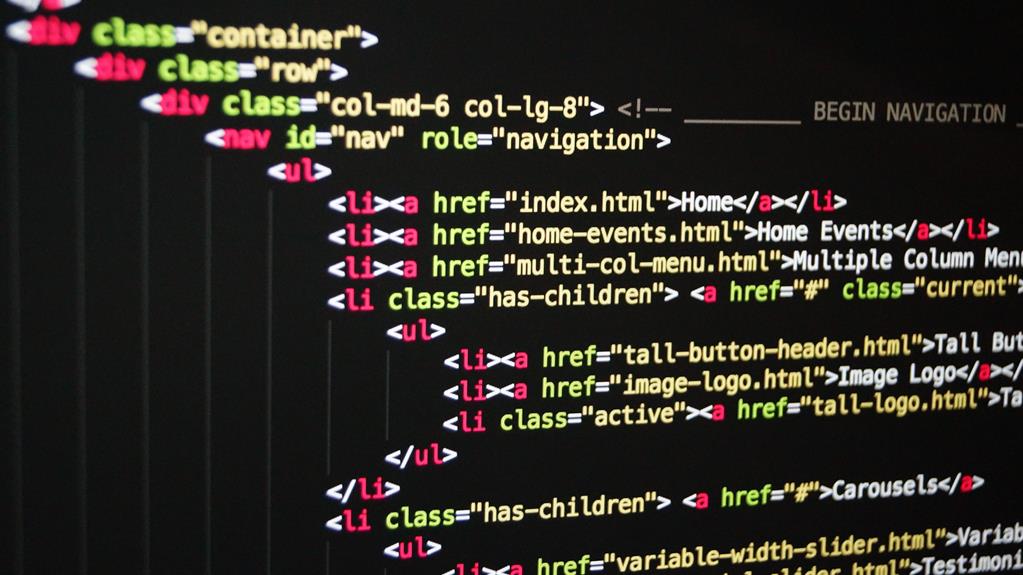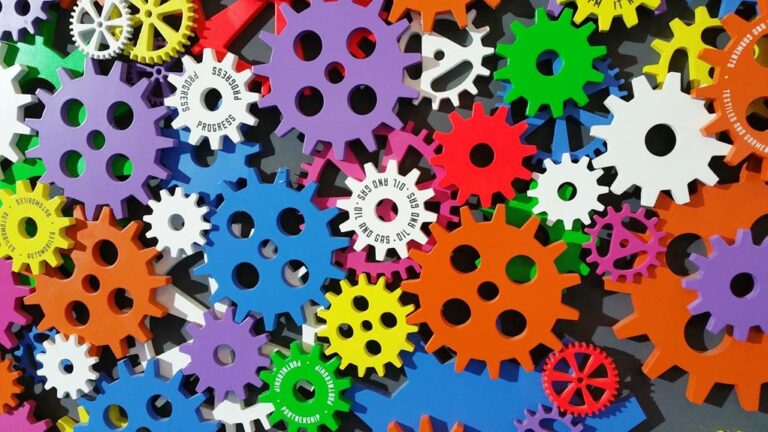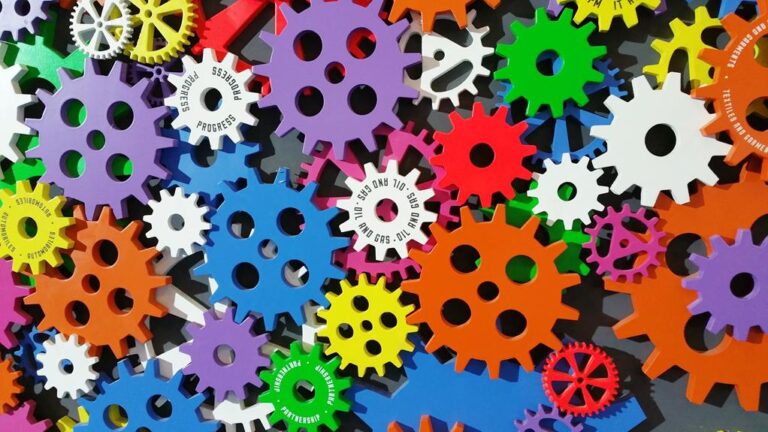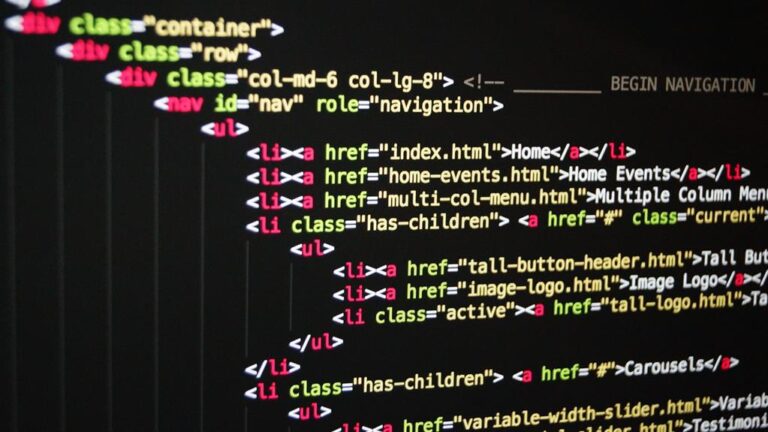As dawn breaks over the skyline of industry, a new era is ushered in by artificial intelligence, changing the landscape of work as we know it. I'm here to pull back the curtain on how AI is not just a tool of automation, but a harbinger of liberation within the workforce. From the way it's streamlining monotonous tasks to birthing entirely new career paths, AI's influence cannot be overstated. It's reshaping skill sets, nudging us toward a gig economy, and redistributing jobs across the globe. While there's talk of job displacement, there's also a promise of greater efficiency in matching people with their ideal roles. I'm diving into the transformation, examining the sectors affected, and exploring the future of workforce training in an AI-driven world. Let's navigate these shifts together, seeking empowerment in the evolution of job availability.
Automation of Routine Tasks
Robotics and AI advancements are eliminating the need for human intervention in repetitive tasks, fundamentally altering my job prospects in various sectors. As these technologies progress, they're not just changing how work is done; they're reshaping the very nature of work itself. This evolution is leading to a renaissance of task simplification, where complex processes are broken down into manageable parts that machines can easily handle. It's a paradigm shift that suggests a future where human oversight becomes the central role, guiding and improving the synergy between human intelligence and machine efficiency.
The implications of this shift are profound. In sectors like manufacturing, logistics, and data entry, the deployment of robots and AI systems for automating routine tasks is already underway. This movement is liberating workers from the tedium of monotonous work, offering a chance to engage in more creative and strategic pursuits. However, it's also creating a pressing need for skills that complement the new technological landscape—skills that revolve around the management, programming, and maintenance of these intelligent systems.
As I ponder my place in this transformed job market, I recognize the importance of staying ahead of the curve. Embracing continuous learning and adapting to emerging technologies are not just options but necessities for thriving in this new era. My focus is shifting towards roles that require a human touch—critical thinking, emotional intelligence, and ethical judgment—areas where machines still lag behind.
Emergence of New Occupations
As AI revolutionizes industries, I'm witnessing the creation of novel job roles that didn't exist a decade ago. This transformation isn't just altering the job landscape; it's revolutionizing it. The occupational diversity we're seeing today is staggering, indicative of a future where adaptability and innovation are not just advantageous but essential.
Let's delve into a few emerging roles:
| New Occupation | Description | Required Skills |
|---|---|---|
| AI Ethicist | Oversees ethical AI development and implementation | Ethics, AI knowledge, critical thinking |
| Data Detective | Investigates and interprets complex datasets | Analytical skills, problem-solving, data science |
| AI Trainer | Teaches AI systems to mimic human behaviors | Communication, psychology, technical expertise |
These occupations exemplify the role evolution catalyzed by AI's integration into every facet of modern work. As I analyze these trends, it's clear that liberation from mundane tasks enables humans to engage in more intellectually stimulating and creative endeavors. Each new occupation demands a blend of technical acumen and soft skills, underscoring the importance of continuous learning and adaptability in our technological era.
Occupational diversity is not just about job creation; it's about crafting a future that harnesses human potential alongside artificial intelligence. The emergence of these roles reflects a world where AI does not replace humans but collaborates with us, amplifying our abilities and pushing the boundaries of innovation.
In this dynamic landscape, I'm optimistic about the opportunities ahead. The synergy between AI and human ingenuity promises a workforce that's more diverse, resilient, and forward-thinking than ever before. As we navigate this role evolution, I'm energized by the prospect of contributing to a world where work is liberating and life-affirming.
Changing Skill Requirements
As AI continues to advance, I'm observing a shift in the job market that necessitates a new breed of skills—prompting an upskilling imperative among the workforce. Traditional abilities, once considered staples of industry, are quickly becoming obsolete, overtaken by the demand for digital literacy and AI fluency. This evolution in skill requirements underscores a future where adaptability and continuous learning are not just advantageous, but essential for career longevity.
Upskilling Imperative
I've recognized that embracing AI necessitates developing new skills to stay relevant in the evolving job market. As we stand on the brink of this technological revolution, our approach to our careers must pivot toward:
- Continual learning: To remain competitive, I must dedicate myself to lifelong education, acquiring new knowledge as AI transforms industries.
- Career adaptability: I need to be prepared to shift roles, perhaps multiple times, cultivating a versatile skill set that spans beyond my current expertise.
- Proactive tech engagement: I must not only learn about AI but become adept at leveraging it to enhance my work, thus securing my place in a future where human-AI collaboration is the norm.
This upskilling imperative is not just a necessity; it's our ticket to liberation in a future where AI reshapes every facet of our work lives.
Obsolete Skillsets
The advent of AI is making certain skillsets redundant, pushing me to evaluate and update my competencies to remain employable. As AI continues to advance, the skills that were once in high demand are now facing obsolescence. Traditional craftsmanship, a bastion of human ingenuity, is being undercut by AI that can replicate intricate designs at unprecedented speeds. For me, it's clear that clinging to outdated methods won't suffice.
Here's a concise table that illustrates the shift:
| Traditional Skill | AI Influence | Future Direction |
|---|---|---|
| Manual bookkeeping | Automated accounting | Strategic financial analysis |
| Assembly line work | Robotic automation | Robot maintenance/engineering |
| Hand-drawn drafting | CAD software | 3D modeling & virtual prototyping |
Skill redundancy isn't an end but a transformation. It's about pivoting towards skills that AI can't replicate – those that require emotional intelligence, creativity, and strategic insight.
Job Displacement Concerns
Job displacement is one of my foremost worries when considering the impact of AI on employment. The ethical implications of such displacement cannot be overstated, as AI-driven automation stands poised to reshape the workforce in profound ways. While some view this as an evolution towards efficiency, I can't help but be acutely aware of the social inequality that may be exacerbated in the process. The risk is that the benefits of AI might disproportionately favor those who are already technologically and economically advantaged, leaving behind a significant portion of the population struggling to keep pace with the rapid changes.
Here are three critical concerns associated with job displacement by AI:
- Skill Gaps: As AI takes over routine and repetitive tasks, there's an emerging gap between the skills workers currently possess and those required to interact with or oversee AI systems.
- Economic Stratification: The displacement may lead to a bifurcated job market, with high-paying, AI-centric roles on one end and a dearth of middle-skilled jobs on the other, squeezing out a significant swath of the workforce.
- Adaptation and Retraining: The speed at which AI is evolving necessitates continuous learning and adaptation, but not all workers have equal access to the necessary resources to retrain or upskill.
As I look to the future, I can't help but advocate for a thoughtful approach to the integration of AI into the job market. It's essential to foster an environment where technological advancement and human dignity walk hand in hand, ensuring that liberation from monotonous work doesn't translate into liberation from employment itself. We must strive to create a balanced ecosystem where AI serves to empower and augment human capabilities rather than replace them wholesale.
Enhanced Job Matching Efficiency
As we peer into the realm of AI's impact on the job market, it's becoming clear that smarter candidate screening is a game-changer. I'm observing a significant reduction in hiring time, as AI algorithms swiftly sift through applicants to find the ideal matches. This precision not only streamlines the recruitment process but also hints at a future where job seekers and employers experience unprecedented efficiency in connecting with one another.
Smarter Candidate Screening
I've observed that one significant way AI is transforming job availability is through the implementation of smarter candidate screening, which has improved the efficiency of job matching. This evolution is not just about filtering resumes; it's about a deeper, more nuanced understanding of a candidate's potential fit. Here's how:
- Artificial Empathy: AI systems are being designed to interpret nuances in language and behavior, providing insights into a candidate's soft skills and cultural fit.
- Unconscious Bias Reduction: By algorithmically focusing on skills and experience, AI helps mitigate unconscious biases that might otherwise influence hiring decisions.
- Predictive Analytics: AI can forecast a candidate's success in a role, based on vast data sets and patterns that would be imperceptible to humans.
This is liberation through technology—empowering a fairer, more meritocratic job market.
Reduced Hiring Time
Continuing from smarter candidate screening, I'm now turning to how AI slashes hiring times by enhancing job matching efficiency. With interview automation, companies are empowered to expedite the recruitment process while simultaneously upgrading the candidate experience. Artificial intelligence doesn't just refine candidate selection; it transforms the entire hiring trajectory, ensuring that job seekers are matched with roles that resonate with their skills and aspirations more swiftly.
This evolution is a liberating force, freeing both employers and potential employees from the lengthy limbo of traditional hiring. It's a futuristic leap towards a job market that's not only more efficient but also more human-centric. AI's analytical prowess in swiftly pairing candidates with the right opportunities marks a new era of professional matchmaking—one where talent meets opportunity in record time.
Impact on Wage Dynamics
Several studies suggest that AI's integration into various industries is leading to a significant shift in wage patterns across the job market. This technological paradigm is not just altering the landscape of employment opportunities but is also reshaping wage dynamics in ways that are both promising and concerning. Here, I'll delve into the nuances of this transformation:
- Wage Polarization: AI is exacerbating wage polarization, widening the gap between high and low-wage earners. As AI and automation primarily replace routine, middle-wage jobs, workers are being pushed towards either high-skill, high-wage roles or low-skill, low-wage jobs. This polarization is creating a bimodal wage distribution, with fewer opportunities for workers in the middle.
- Earnings Inequality: The rise of AI is contributing to increased earnings inequality. Those who can adeptly complement AI, typically workers with advanced technical skills or those in supervisory roles, are seeing their value—and consequently, their earnings—surge. Conversely, workers displaced by AI may struggle to find comparable roles, often settling for lower-paying jobs, thus widening the earnings gap.
- Demand for Specialized Skills: As AI continues to advance, there will be a growing demand for specialized skills that are difficult to automate. Workers with these skills will likely command higher wages, reinforcing the need for continuous learning and adaptability in the face of rapid technological change.
In the future, it's crucial that we address these wage dynamics to foster an equitable job market. By investing in education and training programs that empower workers to thrive alongside AI, we can mitigate the negative impacts and harness this technology for the collective good. This is about more than just staying competitive; it's about ensuring that the march of progress leaves no one behind.
Shift Toward Gig Economy
The advent of AI-driven workforce restructuring has spurred a significant move towards a gig economy, where I'll explore how temporary positions and flexible jobs are becoming the norm. This seismic shift is not just about the proliferation of jobs but also about the liberation of the workforce from the traditional 9-to-5 grind. Freelancer platforms are at the heart of this transformation, leveraging AI to match skills with needs in a fluid, real-time marketplace.
I'm witnessing a renaissance in how we conceive work-life balance, driven by AI's ability to parse through vast data sets to identify opportunities for skill deployment. Remote collaboration tools, powered by AI, are dismantling geographical barriers, enabling me to work with teams scattered across the globe from the comfort of my home. This isn't just convenience; it's an overhaul of job dynamics, with autonomy and flexibility at its core.
Freelancer platforms, underpinned by AI, are curating a new breed of work culture where I am no longer tethered to a single employer. Instead, I am empowered to take on projects that resonate with my skills and interests. The gig economy is carving out spaces for niche expertise and fostering an environment where diverse talents can thrive outside the confines of traditional employment.
As AI continues to advance, remote collaboration will become even more seamless, further entrenching the gig economy into our societal fabric. I'm looking at a future where job availability is not just about the quantity but the quality of work, with AI serving as the catalyst for a liberated, diversified, and more satisfied workforce.
Geographic Redistribution of Jobs
Exploring the impact of AI on job distribution, I'm noticing a significant shift in how employment opportunities are no longer bound by geographic location. This transformation is catalyzed by the advent of AI-driven remote hiring platforms that leverage algorithms to match candidates with jobs globally, effectively sidelining traditional location constraints. The implications are profound, fostering economic decentralization and facilitating a more diverse and dynamic workforce.
Here's how the landscape is changing:
- Remote Hiring: AI is powering sophisticated platforms that evaluate candidates from anywhere in the world, effectively democratizing access to employment. This means I can live in a rural town and work for a company thousands of miles away without relocating.
- Economic Decentralization: By breaking the monopoly of urban centers on high-paying jobs, AI is spreading economic opportunities more evenly across regions, which could rejuvenate local economies and reduce urban congestion.
- Cultural Integration: As companies hire globally, they inadvertently foster cross-cultural exchanges and learning, which can lead to more innovative and inclusive work environments.
The future I'm envisioning is one where AI not only changes the types of jobs available but also where those jobs can be done. It's a world where one's address doesn't predefine their career trajectory and where economic liberation is not a privilege confined to specific locales. As we continue to embrace these changes, it's essential to ensure that the benefits of this geographic job redistribution are accessible to all, fostering a truly liberated and equitable global workforce.
Sector-Specific Employment Shifts
I've observed that virtually every industry is experiencing employment transformations as AI redefines roles and tasks. The industry-specific impact of AI on employment trends is profound and multifaceted. In manufacturing, for instance, AI-driven automation has streamlined production lines, shifting the demand from manual labor to technicians who can manage and maintain intelligent machinery. The healthcare sector is witnessing a surge in AI diagnostics and personalized treatment plans, which in turn requires a new breed of healthcare professionals adept at integrating AI tools into patient care.
In finance, AI algorithms have revolutionized data analysis and decision-making processes, creating a need for professionals who can interpret AI-derived insights and apply them to complex financial strategies. Meanwhile, the legal field is leveraging AI for document analysis and research, reshaping the job landscape towards those who can harness such technologies to augment traditional legal services.
The retail industry isn't left untouched, with AI enhancing customer experience through personalization engines, necessitating a workforce that can design, implement, and monitor these AI systems. Even creative sectors like entertainment and design are morphing, as AI tools assist in creating music, art, and designs, thereby changing the typical job descriptions of artists and designers.
What's crucial here is the liberation that AI can potentially offer from mundane tasks, freeing humans to pursue more creative, strategic, and interpersonal roles that machines can't replicate. The future of work isn't just about the displacement of jobs but the evolution of job roles in harmony with AI's capabilities. As we transition into this new era, our focus must be on upskilling and reskilling to embrace AI as a partner rather than a rival in the workforce.
The Future of Workforce Training
As we navigate the evolving job landscape shaped by AI, I'm convinced that the future of workforce training will hinge on our ability to adapt educational systems and professional development programs to meet the changing demands of industry. The essence of this transformation is not just about learning new skills; it's about fostering a mindset that is agile and receptive to continuous learning.
Here are three pivotal aspects of workforce training that I believe will shape our future:
- Digital Literacy: As the bedrock of the AI-infused workplace, digital literacy won't just be an asset; it will be as fundamental as reading and writing. People will need to interact seamlessly with AI tools and understand the basics of data management and cybersecurity to stay relevant.
- Adaptive Learning Platforms: Traditional education models are often rigid, but the future lies in adaptive learning systems that use AI to tailor training to the individual's pace, style, and career trajectory. This personalization ensures that each person can maximize their potential and adapt to new roles as they emerge.
- Cross-Disciplinary Expertise: The siloed approach to learning will give way to cross-disciplinary programs that blend technology, humanities, and business. This holistic education will empower workers to think critically and creatively about how AI can be applied to solve complex problems.
In this transformative era, it's clear that liberating our workforce from obsolete practices and embracing these innovative training strategies is crucial. We must become lifelong learners, continually adapting to the shifting tides. This is the only way we'll flourish alongside our sophisticated digital counterparts. By committing to these principles, we are not just adapting; we are leading the charge toward an enlightened, AI-integrated future.
Frequently Asked Questions
How Can Small Businesses Adapt to the Ai-Driven Changes in Job Availability Without Significant Investment in New Technology?
Facing AI-driven job shifts, I've learned a staggering 85% of jobs in 2030 haven't been invented yet, urging adaptability. To stay ahead, I'm considering AI training for my team, fostering agility without major investments. Establishing tech partnerships can offer cutting-edge insights, ensuring my small business thrives. By embracing this transformative wave, I'm positioning myself to not just survive but lead in a future where liberation through innovation is key.
What Ethical Considerations Should Be Taken Into Account When Implementing AI That Could Lead to Job Displacement?
When deploying AI, I must consider its ethical impact, particularly on worker rights. Ensuring AI transparency is paramount to foster trust and accountability. As AI evolves, I'm compelled to analyze its implications thoughtfully, aiming to protect jobs and support those affected. It's not just about tech advancement; it's about shaping a future that liberates and empowers all. We're at a crossroads, and I advocate for a path that honors human dignity.
How Might AI Reshape Job AvAIlability in Developing Countries Differently From Developed Countries?
In developing nations, AI's impact on jobs might deepen the digital divide, as I see it. Limited access to advanced tech can stall workforce training, essential for adapting to AI-induced changes. On the other hand, developed countries often have resources for reskilling, harnessing AI's potential to create new roles. I'm keenly aware that equitable tech access and education are critical in ensuring AI becomes a liberating force globally.
What Are the Environmental Implications of the Shift Towards AI and Automation in Various Industries?
The shift toward AI and automation is a double-edged sword for the environment. On one hand, it can reduce greenhouse gas emissions by optimizing energy use. On the other, it risks ecosystem disruption as industries transform landscapes. I'm mindful of how this tech evolution must be managed sustainably. As we stride into the future, it's crucial that our liberation includes freeing nature from the adverse effects of our progress.
How Can Policymakers Ensure That the Benefits of Ai-Driven Job Market Changes Are Equitably Distributed Across Different Socioeconomic Groups?
To ensure fair AI-driven job shifts, policymakers must prioritize Education Reform. A staggering 40% of jobs could be automated by 2030, which means Workforce Reskilling isn't just an option; it's a necessity. By adopting an analytical and futuristic approach, I'm convinced that targeted training programs can liberate individuals from socioeconomic constraints, equipping them for tomorrow's challenges and opportunities in an evolving employment landscape.



